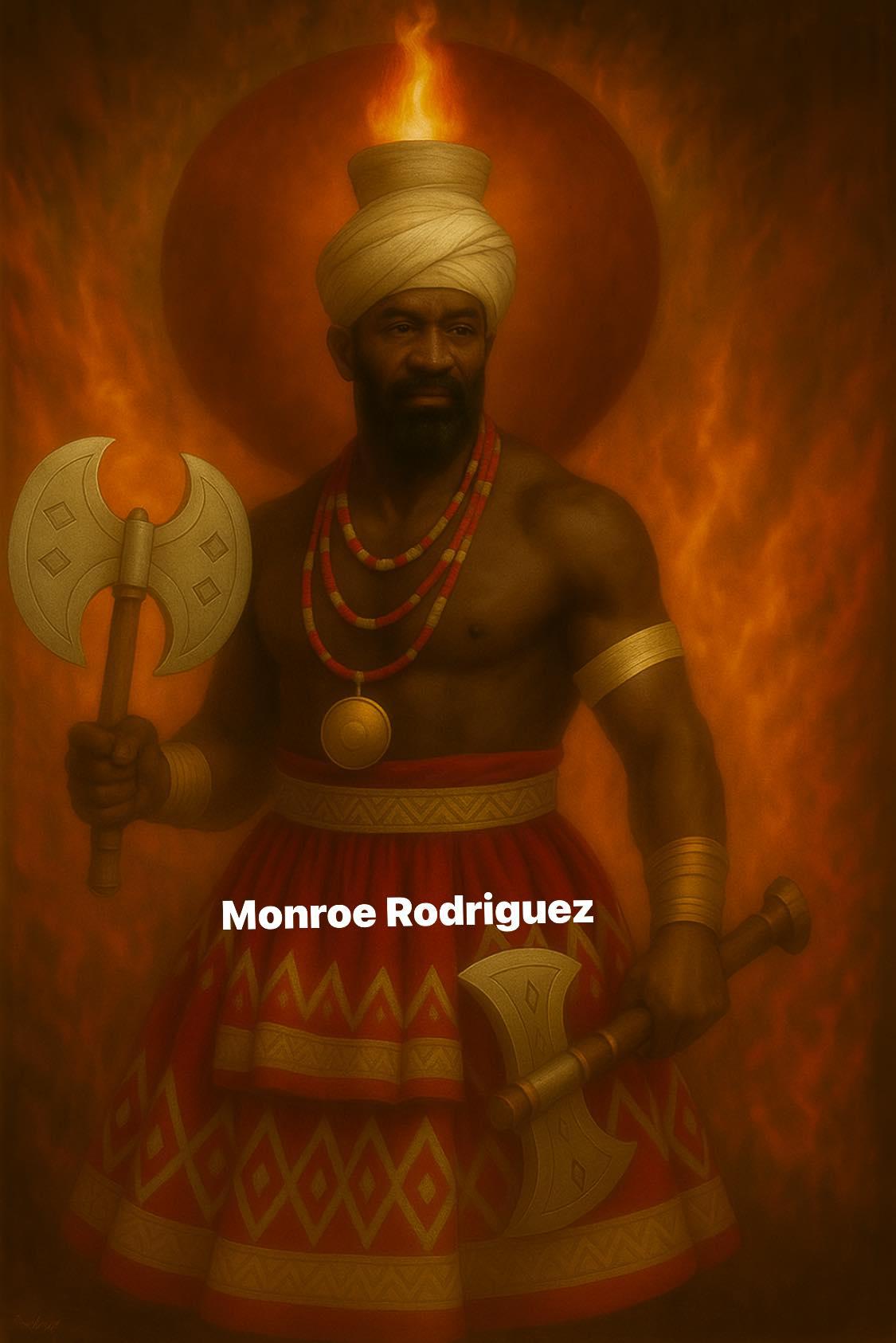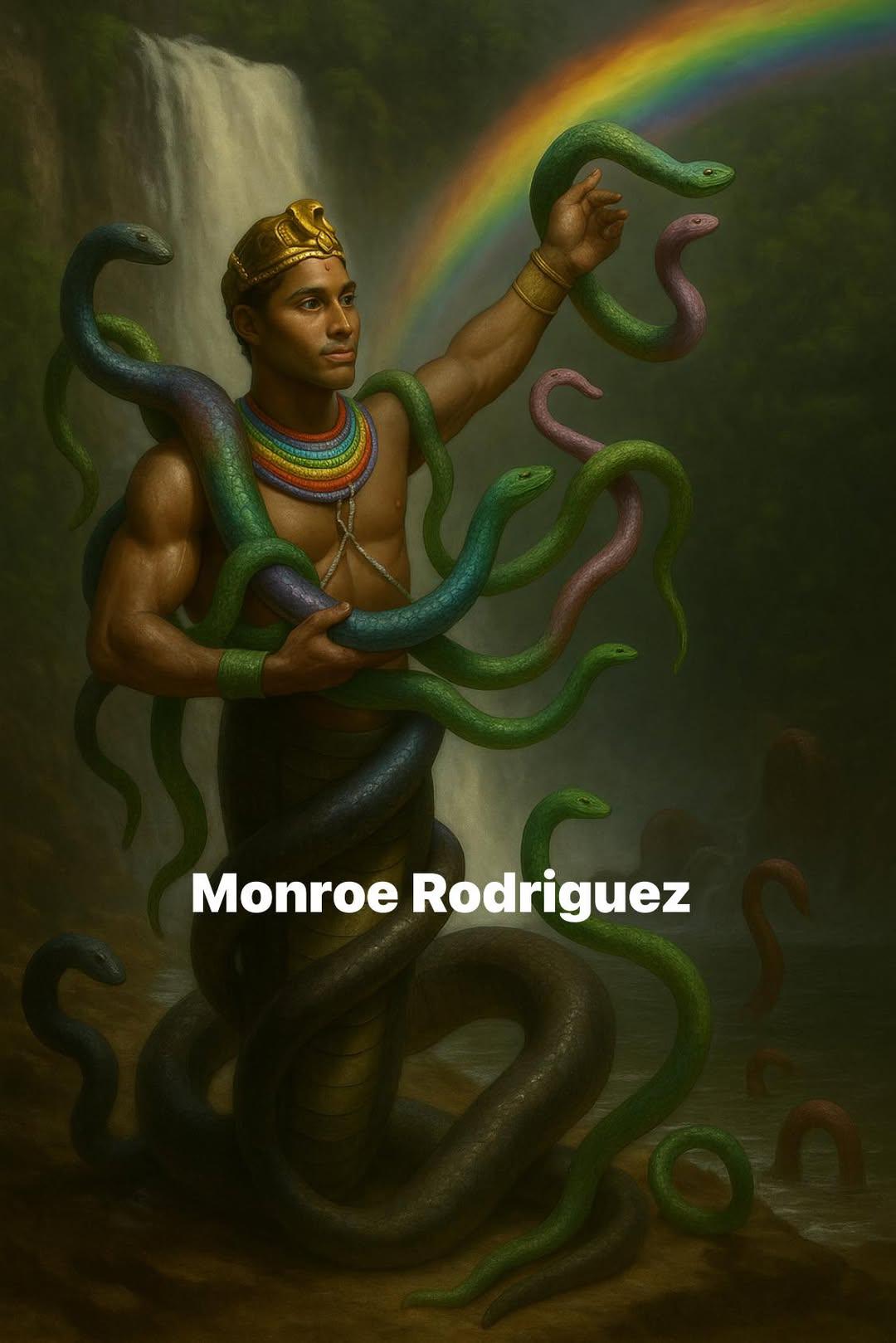Orisa Traditions: Pathways of Power and Spirit
-
Ori: The Divine Blueprint Within—Understanding the Yoruba Concept of Destiny and SelfJune 23, 2025 at 3:59 PM
Ori is the axis of Yoruba spirituality—a dynamic intersection of destiny, personal divinity, and self-realization. Chosen before birth yet shaped by daily choices, Ori calls each person to honor their deepest self, take responsibility for their journey, and seek alignment through both spiritual practice and ethical living.
-
Ìyáàmi Ṣoròngá: Mothers of Mysteries in Yoruba Cosmology
Ìyáàmi Ṣoròngá refers to a collective of primordial, spiritually potent women in Yoruba cosmology, often known as “Mothers of Mysteries” or “Mothers of the Night.” As custodians of àṣẹ (spiritual power), they function as guardians of morality, justice, and cosmic balance. Their influence supersedes that of kings, priests, and even the Orisa, reflecting their foundational role in Yoruba spiritual hierarchy. Membership in the Ìyáàmi is hereditary or mystical rather than initiated, and their rituals and symbols are closely guarded. The Ìyáàmi embody both nurturing and corrective powers, serving as the invisible axis upon which Yoruba society and spirituality turn.
-
Airá: The Royal Paradox of the Orisa—Thunder, Wind, and Kingship in Yoruba Cosmology
Airá is a distinct Orisa within Yoruba cosmology, often viewed as a “cooler,” more temperate aspect of Sango, associated with wind, justice, and refined kingship. Revered both in West Africa and the African diaspora, Airá exemplifies the multiplicity within the Orisa tradition—balancing power with restraint, and force with reason. His rituals, symbols, and narratives emphasize moderation, moral leadership, and adaptability, making Airá a vital figure for understanding the diversity and ethical depth of Yoruba religion.
-
Ṣàngó: The Orisa of Thunder, Kingship, and Justice in Yoruba Religion
Ṣàngó is a foundational Orisa in Yoruba religion, historically rooted as a king of Oyo and mythologically exalted as the Orisa of thunder, lightning, and royal authority. His cult emphasizes the integration of power, justice, and charisma. Both in West Africa and the African diaspora, Ṣàngó’s worship features vivid ritual performance, strict ethical codes, and an ongoing engagement with themes of social justice and spiritual resilience. The myth and veneration of Ṣàngó offer rich insights into Yoruba concepts of leadership, morality, and the transformative potential of spiritual power.
-
Ògún: the yoruba orisa of iron, transformation, and civilization
Ògún is the Yoruba Orisa of iron, technology, war, and transformation—revered as the opener of roads and the patron of both civilization and justice. His myths emphasize the dual nature of creative power: fostering both construction and destruction. Through ritual, offerings, and festivals, Ògún is invoked for protection, innovation, and moral integrity. In the diaspora, Ògún remains a symbol of resilience and adaptation. The concept of Ògún illuminates the Yoruba understanding of progress, the ambivalence of power, and the ethical imperative to wield aṣẹ with wisdom and respect.
-
Living the Wisdom of Osun (Oshun): Flow, Balance, and Community in the Yoruba Tradition
Osun (Oshun) is a central figure in Yoruba spirituality, revered as the Orisa of rivers, creativity, fertility, and love. More than just a goddess, Osun represents the principles of flow, balance, adaptability, and care for the community. Honoring Osun means protecting water, defending the rights of women and children, and living truthfully and compassionately.
She teaches that spiritual life is about embodying her values in daily actions—being adaptable like water, seeking harmony, practicing forgiveness, and ensuring the wellbeing of all. Osun’s taboos include lying, cruelty, and mistreatment of women or children. Her favorite offerings are sweet things like honey and kola nuts, but above all, she desires sincerity and ethical living.
Osun’s teachings challenge modern obsessions with money and individualism, urging us to prioritize collective wellbeing, truth, and community. True abundance, according to Osun, flows from love, generosity, and living in harmony with nature and each other.
-
Osumare (Òṣùmàrè): The Rainbow Serpent in Yoruba Cosmology
Osumare (Òṣùmàrè) is the Yoruba Orisa of the rainbow and serpent, embodying movement, transformation, and the cyclical nature of existence. Representing the union of opposites—male and female, heaven and earth—Osumare serves as a bridge between worlds, sustaining cosmic balance through cycles of water, prosperity, and renewal. Venerated in West Africa and throughout the diaspora, Osumare’s worship emphasizes offerings that symbolize fluidity and unity. In times of change and imbalance, Osumare is invoked to restore harmony, demonstrating the ongoing importance of this Orisa in Yoruba tradition and beyond.
-
Olorun: The Supreme Source in Yoruba Cosmology
Olorun is the Supreme Being in Yoruba cosmology, representing the source of all existence, the heavens, and the cosmic principle of order. As the origin of Ase, the vital spiritual energy, Olorun sustains the universe without direct involvement in daily affairs. Instead, Olorun delegates to the Orisa, who embody specific forces of nature and life. Unlike the Orisa, Olorun is transcendent, without shrines or sacrifices, approached through prayer, ethics, and reverence for cosmic balance. Olorun’s presence continues to be central in Yoruba religion worldwide, offering timeless lessons on harmony, responsibility, and the sacred interconnectedness of all life.
-
Ajala: The Divine Potter of Destiny in Yoruba Cosmology
Ajala is the Yoruba Orisa responsible for crafting the Ori, the spiritual head that determines a person’s destiny. As the Divine Potter, Ajala creates Ori of varying quality, and each soul chooses one before birth. This choice directly impacts the ease, challenges, and trajectory of one’s life. Ajala symbolizes divine craftsmanship, personal responsibility, and the imperfect yet purposeful nature of existence. While not directly worshipped, Ajala’s influence is central in rituals of Ori alignment, emphasizing that even a challenging destiny can be negotiated and improved through spiritual work and right living.
-
Ọ̀kẹ́ – The Silent Sentinel of the Yoruba MountainsJune 23, 2025 at 3:59 PM
Ọ̀kẹ́ is the Yoruba Òrìṣà of the mountains, representing protection, endurance, elevation, and ancestral wisdom. As a primordial deity, he is associated with high places, solemn rituals, and the spiritual role of mountains as bridges between heaven and earth. Worshipped in sacred hills and known for his quiet strength, Ọ̀kẹ́ holds a vital place in Yoruba religion as a symbol of permanence, resistance, and connection to the ancestors.
-
Esu Anaki: The Fire-Tongued Trickster of Elegguá’s Roads
Esu Anaki is a fierce, feminine road of Elegguá in the Lukumí tradition. Known for her fire-tongued speech, spiritual heat, and fearless confrontation, she is invoked in times of conflict, truth-telling, and protection. Though part of the larger Elegguá archetype, her presence is distinct—offering devotees a path of purification through fire, wit, and spiritual confrontation. She challenges gender norms, empowers the silenced, and brings transformation through chaos and clarity alike.










